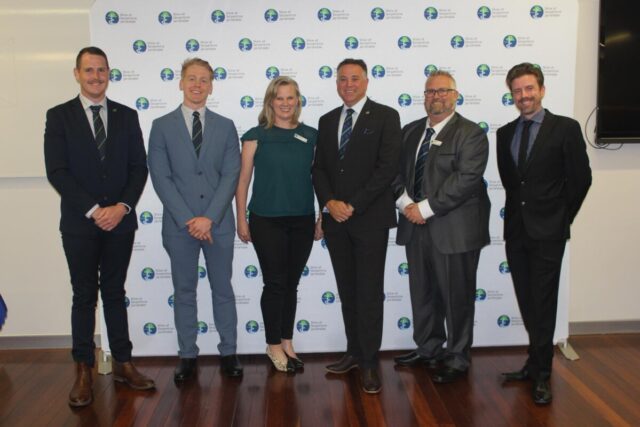
Council has voted down a motion to open up its policy concept forums (PCFs), workshops and Q&A sessions to the public.
The motion, proposed by Cr Morgan Byas sought to allow for more public scrutiny of the “business of council”, and foster a greater sense of community involvement.
In an argument in support of his motion Cr Byas said it “would allow people to have confidence in what council is doing, because so much of what we do happens behind closed doors”.
He referred to the dire turnout during the most recent council election as a motivating factor in bringing about this policy change: “I’d like to see more people getting involved”.
But president Coales and deputy president Duggin presented a number of salient points when speaking against the motion.
President Coales said council was already working towards greater transparency, by initiating a ‘speak with a councillor’ session at the weekly farmers’ markets. He also said that “councillors’ doors are always open”.
Despite being voted into council on a platform of increasing transparency, the president said he also acknowledged there were good reasons for privacy, including during Q&A sessions when councillors might like to ask a ‘silly’ question in order to get a better understanding of the ideas at play.
“It’s important for us to have an honest and frank discussion, and ask honest, frank questions without the prying eyes of the public,” he said.
He also questioned whether having a watchful public at PCFs could hinder councillors from bringing policy ideas to the table for workshopping.
He furthered his argument by positing that if the public understood how a councillor was likely to vote for any given motion after a Q&A session, it could cause an issue where councillors were being harangued to change their vote prior to a council meeting.
Cr Duggin agreed that it was important to invite the public into the decision-making process, but that necessitated several caveats.
“I think we need to be very mindful of the balance between protecting our confidentiality and being transparent,” she said.
She outlined that if people weren’t present at all parts of a motion’s passage through council – from PCFs, to workshops, to Q&As, and finally to a council meeting – that it could create unnecessary confusion.
She also said a certain level of anonymity was necessary for spokespeople from government bodies, businesses and organisations to speak candidly without fear of recrimination from the public.
“That information is what we base our decisions on at this table, and if they are looking behind them and seeing members of the community and being concerned about what they’re saying, then we have actually failed in our primary role,” Cr Duggin said.

Council officers furthered this line of argument in their report by saying that private meetings were a “key feature of Westminster Government”.
“While noting the importance of transparency in decision making, officers contend that good government processes inherently involve the free exchange of ideas occasionally behind closed doors,” they said.
The motion was lost 4:2, with only Crs Byas and Jerrett supporting it.
“This decision is a missed opportunity to restore trust and build a deeper connection with the community we serve,” said Cr Byas in response to council’s decision.
“However, this is not the end. The rejection of this motion does not diminish the importance of our cause, nor does it deter my resolve to advocate for the interests of our ratepayers. There can be no half-measures here. Either council is accountable and transparent, or it’s not. Unfortunately, the majority of council has decided to keep the doors closed and the ratepayers locked out.”













